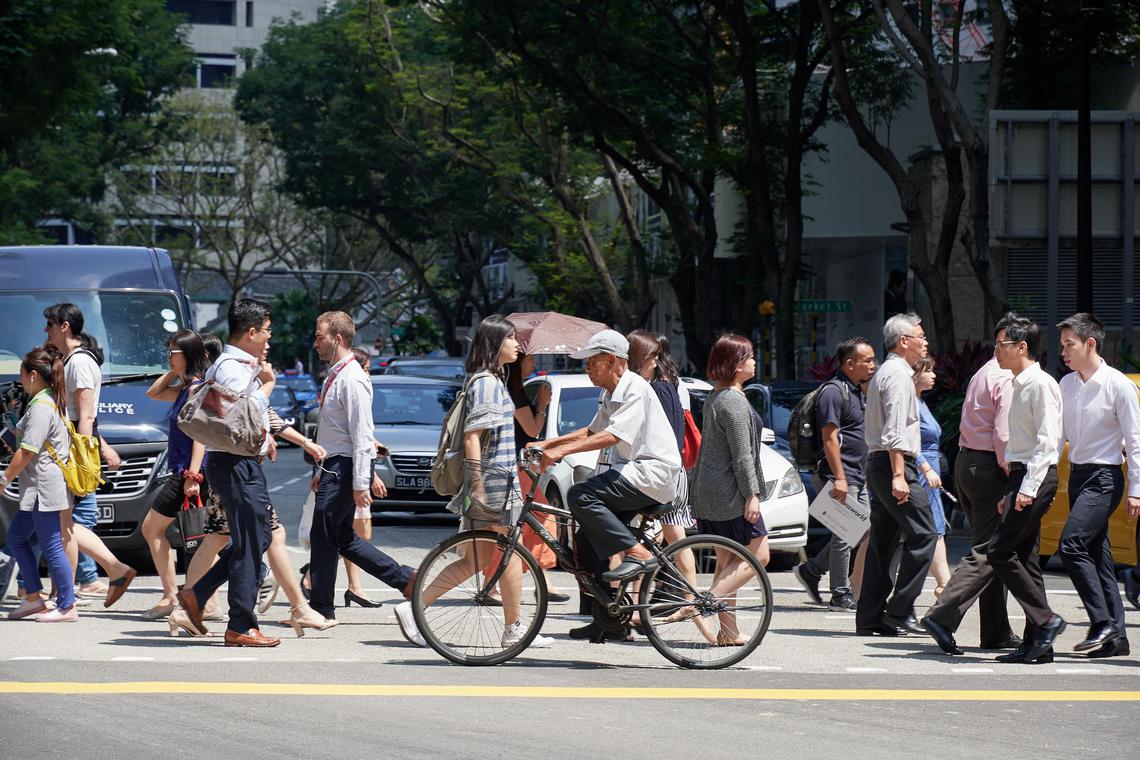SINGAPORE – Upward social mobility is becoming more challenging and new approaches may be needed to keep Singaporeans progressing in a world beset by global trade tensions and other disruptions, said Minister for Social and Family Development Masagos Zulkifli on April 30.
Mr Masagos said in his closing speech at the 2025 International Conference on Societies of Opportunity: “Indeed, what served us well in the past, and which may even serve us well today, may not be what we need for the future.
“We need to boldly make changes, even revisiting fundamental principles if need be. This ensures that our approach towards social mobility will be up-to-date, suitable for present and future challenges.”
The inaugural two-day conference saw academics and policymakers share their research, reflections and programmes relating to social mobility.
The conference, which ends on April 30, was organised by the Ministry of Social and Family Development (MSF) and the Institute of Policy Studies. It was held at the Sands Expo and Convention Centre.
Mr Masagos, who delivered his speech via a video recording, said Singapore’s enduring beliefs have allowed the country to prosper over the last 60 years.
The Republic’s meritocratic system has allowed Singaporeans with the ability and who work hard to have a fair shot at success, he noted.
“We also believe in promoting self-reliance,” he said, adding: “This sense of personal responsibility spurs us to take control of what we can and strive for success.”
He pointed out that as Singapore progressed, it has “evolved towards a more balanced approach on meritocracy and self-reliance”.
While meritocracy can inspire healthy competition, excessive competition can be problematic, intensifying stress levels and straining social ties, said Mr Masagos.
“Instead of working hard to uplift ourselves and the people around us, we may end up focusing narrowly on our own pursuits and goals.”
He added: “Excessive self-reliance can also lead to the mistaken notion that ‘I am who I am solely because of my own efforts’.
“We know that this cannot be true. Our success is also dependent on the people and circumstances around us.”
Enduring principles
The conference, attended by about 700 participants across both days, is being held at a time marked by sharp changes to the global order and economy, along with technological developments leading to displaced jobs.
An ageing population and smaller families are also placing increasing strain on the home front, especially for lower-income families, said Mr Masagos.
“As our world continues to change, so too must we. We must fundamentally rethink how we can continue to achieve social mobility despite these trends,” he said. “With this mindset, trends need not become threats, but instead, opportunities to grow.”
Singapore has operated from several principles that have endured – and will endure – the test of time, he added.
The first is that strong families make strong societies, he said, adding that policies here emphasise building strong and resilient families.
“Second, we recognise, harness and maximise the diverse strengths of each individual and family,” he said. There is also targeted support for those who need it most.
Mr Masagos cited the MSF’s ComLink+ scheme, a key plank of the national push to boost social mobility where low-income families get financial incentives and other support if they take steps to improve their lives.
These steps include sending their children to pre-school by the age of three, getting a stable job that pays Central Provident Fund (CPF), and saving up to buy their own homes.
One unique feature of the ComLink+ scheme is that a family coach will work closely with each family to leverage their collective strengths to build their confidence and resilience to achieve their goals, Mr Masagos said.
“While social assistance provides a strong safety net to ensure that basic needs are met, we need to further enhance individual and family resilience,” he added.
“Third, we believe the earlier we start, the better,” said Mr Masagos. Taking a proactive approach to address issues early prevents them from escalating and becoming more complex to resolve later on, he said.
One example is the KidStart programme where lower-income parents with children up to the age of six are supported in the areas of early childhood development to give their children a stronger start in life.
Singapore also provides affordable and quality pre-school education to prevent the widening of the gaps between children from lower socio-economic backgrounds and those from more affluent families, he added.
While the Government can create the conditions to enable social mobility, self-reliance is a muscle that must be exercised, he said. “It cannot be allowed to atrophy even as we support those in greater need.”
Community groups and companies can also do their part to boost social mobility and help those in need, he said, stressing the need for a collective effort in this endeavour.
- Theresa Tan is senior social affairs correspondent at The Straits Times. She covers issues that affect families, youth and vulnerable groups.
Join ST’s WhatsApp Channel and get the latest news and must-reads.

